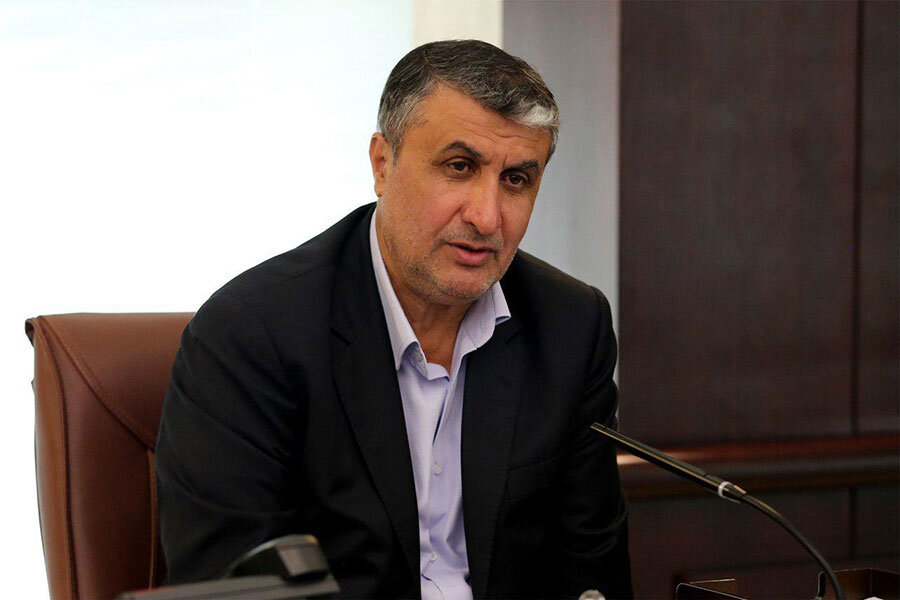Iran’s nuclear chief: We responded to IAEA in completely legal manner

TEHRAN— Iran’s nuclear chief said on Sunday that taking the Iranian nuclear file to the International Atomic Energy Agency’s Board of Governors was the “final test” by the opponents of Iran.
Speaking in Natanz, Mohammad Eslami said that the Atomic Energy Organization of Iran (AEOI) responded to the IAEA in a completely “legal way”.
In response to the IAEA Board’s censure resolution against Iran on June 8, Iran turned off IAEA surveillance cameras that were outside the Safeguards agreement.
The resolution was co-written by the U.S. and the three European countries of France, Britain and Germany, known as E3.
It is noteworthy that prior to releasing his report on Iran’s nuclear activities, IAEA Director General Rafael Grossi made a visit to Israel, which has refused to sign the nuclear Non-Proliferation Treaty (NPT) and is a serious opponent of the 2015 nuclear deal, officially known as the Joint Comprehensive Plan of Action.
According to the Stockholm International Peace Research Institute (SIPRI), Israel possesses 90 nuclear warheads.
Iran is subject to 25 percent of IAEA inspections
Eslami went on to note that international organizations should not abuse their power.
“What is important for the world is to know that Iran has only three percent of the world's nuclear share, but more than 25 percent of the IAEA’s inspections are being conducted in Iran,” the AEOI chief stated.
He added that it should be examined how many of the countries involved in creating commotion against Iran’s nuclear program are being inspected by the IAEA experts.
The nuclear chief pointed to a trilateral security pact between Australia, the United Kingdom, and the United States, known as AUKUS, under which the U.S. and the UK will help Australia to acquire nuclear-powered submarines, asking, “Aren't they (IAEA) sensitive toward these countries?”
In September 2021, Iran’s former ambassador to the Vienna-based international organizations lashed out at the U.S. and UK for adopting double standards. Speaking at the 65th regular session of the IAEA, Kazem Gharibabadi criticized the West for falsely accusing Iran of pursuing non-civilian nuclear technology while inking a deal on building submarines fueled with weapons-grade uranium to another country.
“It is regrettable that the countries that scold Iran for enriching uranium up to 60 percent for humanitarian and peaceful purposes have now decided to sell to Australia military nuclear submarines that will run on uranium enriched to a level of more than 90 percent,” Gharibabadi said at the time.
“Psychological and political pressure”
The AEOI chief went on to say that Iran’s reciprocal nuclear measures are in line with the policy of “psychological and political pressure” and the “maximum pressure” campaign against the Iranian nation.
“The enemies, in their last breath, took their final test and took Iran's case to the Board of Governors, to which we responded in a completely legal manner, and if they want to abide by the treaty, whatever has been agreed there will be implemented. No more or no less.”
